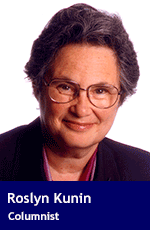 We would really like to have many things right now, even though the prospect of getting them any time soon is rather low. A vaccine against COVID-19 is likely at the top of the list. A bit more certainty about our work and social prospects is probably a close second.
We would really like to have many things right now, even though the prospect of getting them any time soon is rather low. A vaccine against COVID-19 is likely at the top of the list. A bit more certainty about our work and social prospects is probably a close second.
Instead of dealing with the very real problems that generate these desires, our federal government is threatening us with something that might look after its interests in the medium term, but does nothing to help Canadian citizens deal with the once-in-a-lifetime challenges we now face: an election.
It has already called byelections, on Oct. 26, in two Toronto ridings.
The British Columbia government has gone further and called a general election. By calling an election for Oct. 24, that government is ignoring its own legislation concerning fixed election dates.
New Brunswick voters went to the polls on Sept. 14, two years before legislation required an election. Saskatchewan residents will vote on Oct. 26, a fixed date.
The federal government and its counterparts in B.C. and New Brunswick have or had ample time left in their current terms.
It’s very optimistic to expect people to turn out and line up at the polls when so many of us are carefully following the advice of medical experts, minimizing any outside contact. That includes shopping, and carefully avoiding getting close to our loved ones for fear of putting them or ourselves at risk.
Begging the question of whether elections are needed now, governments may tell us that there can be safe ways of conducting votes during pandemics.
We can, for example, have socially-distanced lines with everyone staying at least two metres apart. Picture how long those lines would be in both distance and time, and don’t even think about the fact it might rain or snow on election day.
Of course, there are alternatives to in-person voting. We could have mail-in ballots or even an online option.
But mail-in ballots haven’t been used on a large scale in Canada and online voting has never been implemented outside some municipal elections.
To make either of these or other new options viable would take a great deal of work by government elections staff.
Unfortunately, there’s plenty of evidence that our governments aren’t very efficient in implementing new systems. Here are some examples of where governments could have done better:
At the outset of the pandemic, we were told that masks weren’t helpful and may even be harmful. This wasn’t true and has since been corrected. However, in the short term, it disguised the fact that governments hadn’t properly prepared for a pandemic by having adequate supplies of necessities like masks. There were similar shortages of other protective equipment even though the likelihood of a pandemic was well recognized in the medical community.
Unlike many countries, Canada doesn’t appear to have made adequate plans to obtain sufficient quantities of a vaccine once one becomes available. Where are the plans to distribute and allocate the vaccine once we get access to it? And what does this say about the outlook for mail-in ballots?
An almost unbelievable example of how ineffective a government can be is the fact that after years and million of dollars, the federal government still doesn’t have a properly functioning payroll system for its employees.
On the provincial side, our elected leaders have yet to fully recognize that simply putting a patient on a wait list is not providing health care.
Sometimes governments do the right thing in difficult circumstances. The fiscal changes that both levels of governments made at the outset of the pandemic were effective in keeping the economy functioning, albeit at a reduced level.
Without these government funds, a major 1930s-type depression was possible. This should be recognized and appreciated even though later studies show that not all government aid went to those in need and some who were in need weren’t helped.
However, the economic emergency has now passed. Even though unemployment is still much too high, the economy is slowly growing. What we need now are sound policies that will generate jobs to help people get on their feet financially. We need positive steps to deal with the pandemic, prevent its spread, and find treatments and a cure as quickly as possible.
Until we’ve looked after the challenges we already face, neither we nor our governments should be taking on new challenges, no matter how important those seem in more normal times.
Elections now are a diversion that will turn us away from dealing with the real issues.
Let us first cope with COVID-19. Then we’ll have the time and strength to deal with other issues, like the environment. Make sure we’ve covered all the social and fiscal impacts of the pandemic before we consider the impacts of drastic social policy changes like introducing a universal basic income.
We need to avoid a federal election right now and hope that various provincial elections don’t do too much damage to the process of making Canada and its citizens better.
Troy Media columnist Roslyn Kunin is a consulting economist and speaker.
The views, opinions and positions expressed by columnists and contributors are the author’s alone. They do not inherently or expressly reflect the views, opinions and/or positions of our publication.


